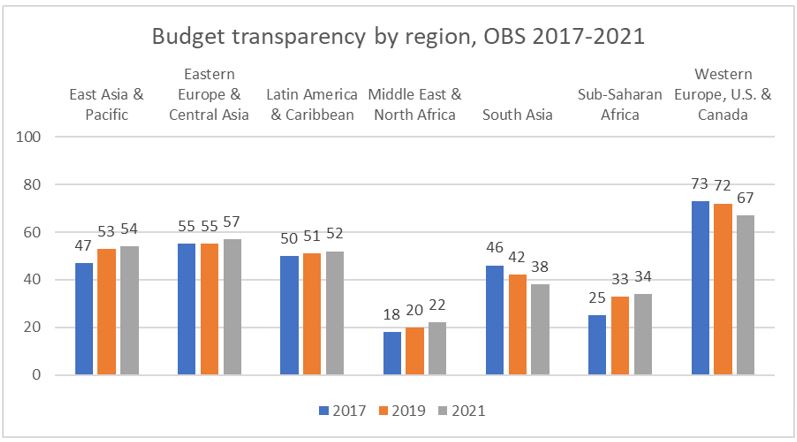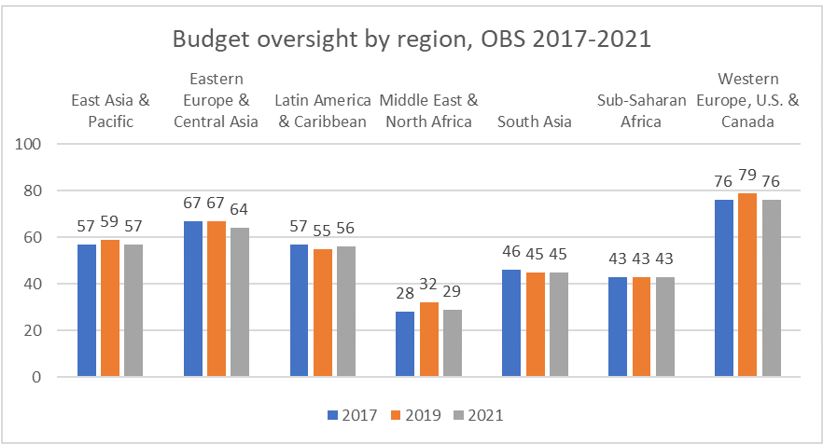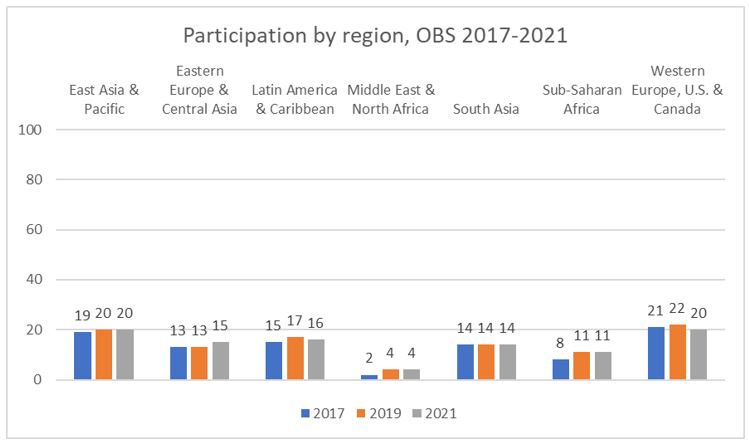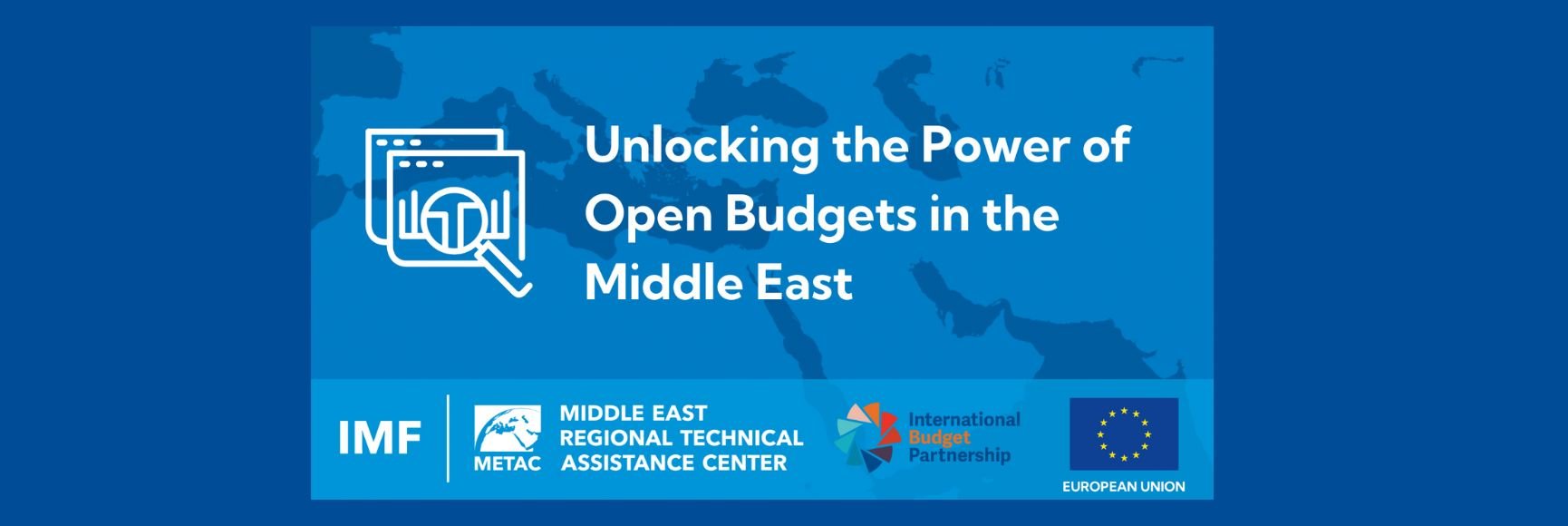The Middle East and Northern Africa (MENA) region[1] faces both challenges and opportunities to deliver progress for its people. The IMF estimates the region will grow by 2.9% this year. Yet this growth underscores great contrasts—with higher energy prices post-pandemic being a boom to the Gulf region while conflict-affected countries like Yemen, Sudan, Lebanon, and even Iraq continue to struggle, and many others like Egypt, Jordan and Tunisia are grappling with mounting debt. The region overall faces major challenges to achieve eight out of the 17 Sustainable Development Goals by 2030.
The public budget is a powerful tool to drive socioeconomic progress. That is why, the European Union, the International Budget Partnership (IBP) and the IMF's Middle East Regional Technical Assistance Center (METAC) is strengthening their ongoing collaboration in the region to build the conditions for transparent, inclusive, and accountable public budgeting.
Unfortunately, most countries in the region are lagging the rest of the world on the main indices of open budgeting. The charts below compare eleven selected MENA countries with other regions in terms of three measures of open budgeting - transparency, oversight, and public participation.
These data show that the region has the world’s lowest levels of budget transparency according to the IBP’s Open Budget Survey (OBS), with an average transparency score of 22 out of 100. Fragile and conflict-affected states, such as Yemen, Sudan, Iraq, or Lebanon, often struggle to enact a budget at all. Comparatively low scores also affect middle- and high-income countries such as Algeria and Qatar. Producing but not publicly sharing budget documents is unfortunately common practice. Many lack the comprehensive data to allow for meaningful debate, are only made available for internal use, or are produced late.

The region also has the lowest levels of budget oversight by legislatures and national audit offices. The average regional score is 29 compared to a global average of 52 out of 100, and well below the second worst performers (Sub-Saharan Africa and South Asia) that score 43 and 45 respectively. The role of legislatures is particularly limited by governance arrangements and legal constraints. For example, in only three cases are there legislative committees that either examine the in-year execution of the budget (Iraq, Jordan, and Morocco) or the audit reports produced by the national audit office (Algeria, Jordan, and Morocco). Further, governments feel little pressure to act on audit recommendations, and national auditors have limited independence. Governments in eight out of the selected 11 countries can remove the national auditor without the final consent of the judiciary or legislature.

Similarly, formal channels for public participation in budget processes in the region are by far the poorest worldwide with an OBS score of only 4 out of 100.

Despite these trends, there are some green shoots that show progress is possible and worth supporting. Jordan has increased its transparency score to 61, reaching a level that supports informed public debate on the budget. IMF Fiscal Transparency Evaluations found that Jordan has improved the timeliness and comprehensiveness of its budget documents and Tunisia has achieved moderate levels of transparency, like Egypt and Morocco.
Some countries are opening formal channels for public participation in budget processes. For instance, the Institute of Finance Basil Fuleihan in Lebanon’s Finance Ministry has teamed up with civil society to create the Lebanon Citizen Budget Dashboard, which provides user-friendly budget data and space for public feedback. In 2020, Morocco’s royal cabinet created a Special Commission on a New Development Model calling for a review of development projects “centered on meeting the needs of citizens.” The Commission launched a broad national consultation, which gathered recommendations that were uploaded onto a public portal and informed discussions with the cabinet.
The EU-IBP new initiative in the MENA region will enable further progress to be made. It will provide budget advocacy skills to diverse, particularly country-based groups in the region so that they can analyze budget documents, leverage them to advance more equitable policies, and create winning alliances that can bolster accountability in public spending.
We believe these efforts can unlock the power of open budgets to propel sustainable progress and reinforce the social compact between people and government in a region that needs it.
[1] The selection of country cases from the MENA region reflects the availability of the Open Budget Survey as well as country coverage of joint analytical work by IBP, METAC and UNDP on budget transparency. A METAC Regional Note on this topic covering Algeria, Egypt, Iraq, Jordan, Lebanon, Morocco, Qatar, Saudi Arabia, Sudan, Tunisia, and Yemen is planned for publication later in 2023.





